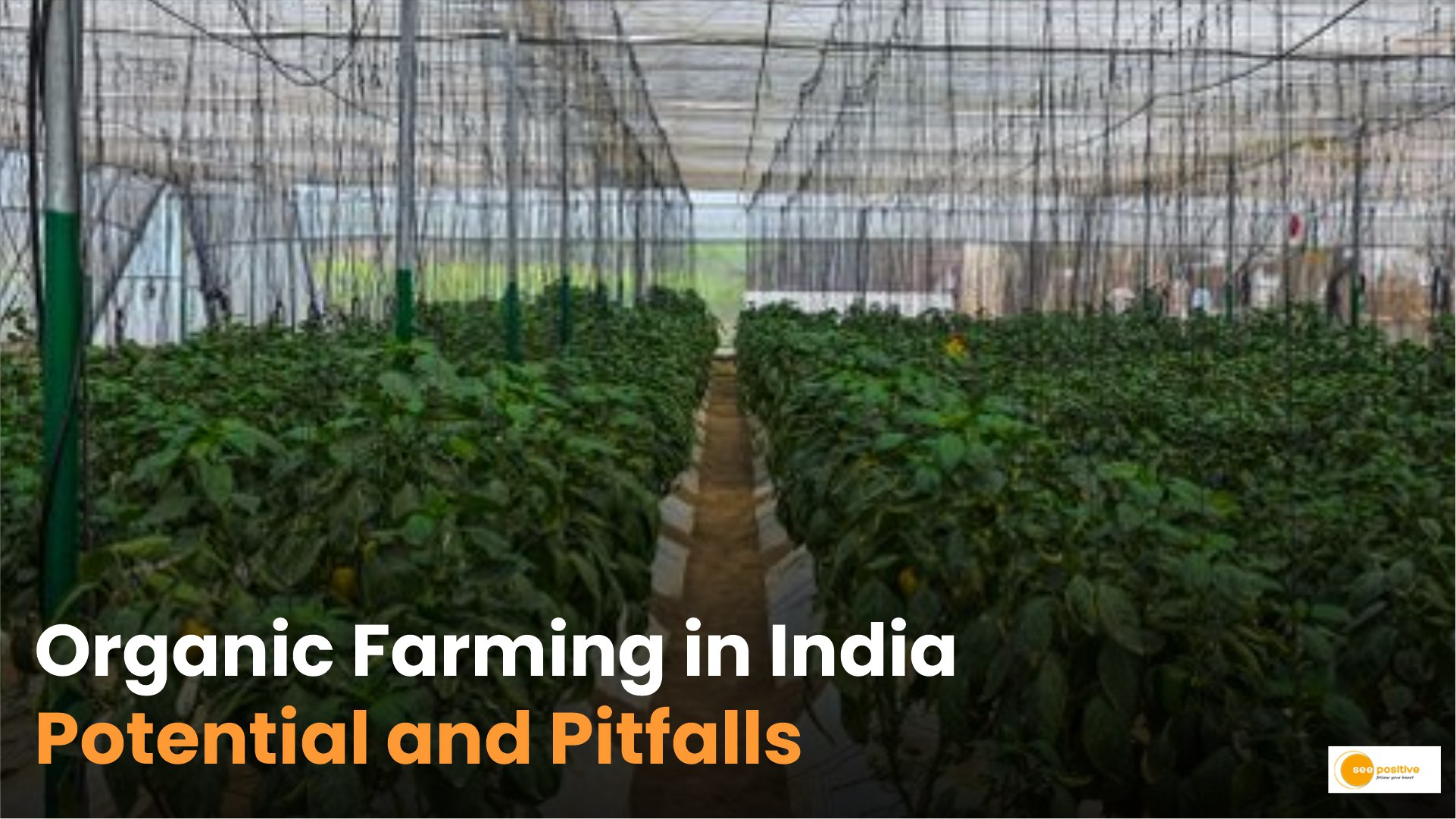Organic Farming: Organic farming is becoming popular in India as people seek healthier and safer food options. With increasing awareness about the harmful effects of chemicals used in regular farming, many farmers are moving towards organic methods. India’s diverse climate, rich biodiversity, and traditional farming practices make it ideal for organic agriculture. Here, we explore the growth, benefits, challenges, and future of organic farming in India.
What is Organic Farming?
Organic farming is growing crops without using artificial chemicals, pesticides, or genetically modified seeds. Instead, it uses natural methods like crop rotation, composting, and natural pest control. Organic farming protects the environment, keeps the soil healthy, and supports biodiversity by creating a safe space for insects, birds, and soil microbes.
Growth of Organic Farming
India has a history of natural farming. Recently, as more people seek safe, chemical-free food, organic farming has gained popularity. The government has introduced programs like the Paramparagat Krishi Vikas Yojana (PKVY) to encourage farmers to adopt organic methods. This program provides financial help and guidance to farmers.
Today, India is among the top ten countries with the most land used for organic farming. States like Sikkim, Uttarakhand, Maharashtra, Rajasthan, and Kerala lead in organic farming, with Sikkim becoming the first state in the world to go fully organic.
Benefits of Organic Farming
Protects the Environment: Organic farming reduces pollution caused by chemical fertilizers and pesticides. It also helps keep the soil, water, and air clean and promotes biodiversity.
Healthier Food: Organic food is free from harmful chemicals and often contains more nutrients, making it a healthier choice.
Higher Income for Farmers: Organic products are in high demand and usually sell at higher prices. This gives farmers better profits.
Resilience to Climate Change: Organic farming improves soil health, which makes crops more resistant to droughts and floods.
Improves Soil Quality: Organic methods like crop rotation and composting increase soil fertility, ensuring that land stays productive for future generations.
Challenges in Organic Farming
Despite the benefits, organic farming faces several challenges in India:
High Initial Costs: Switching to organic farming can be expensive, especially in the first few years when yields may be lower.
Certification Process: Getting organic certification can be costly and time-consuming. Small farmers often find it difficult to afford this.
Limited Market Access: Organic farmers may have trouble reaching profitable markets due to a lack of proper supply chains and storage facilities.
Lack of Knowledge and Training: Organic farming requires specific skills and knowledge. Many farmers lack the training needed to manage crops without chemical inputs.
Competition with Conventional Farming: Regular farming methods usually give faster and higher yields, which can make organic farming seem less competitive in the short term.
Government Support
The Indian government has introduced various programs to promote organic farming:
– Paramparagat Krishi Vikas Yojana (PKVY): This program provides financial support to farmers and encourages them to use traditional organic farming practices.
– National Mission for Sustainable Agriculture (NMSA): NMSA supports sustainable use of resources and eco-friendly farming through training, research, and funding.
– Jaivik Bharat: The Food Safety and Standards Authority of India (FSSAI) started the “Jaivik Bharat” initiative to certify and label organic products, helping consumers identify genuine organic goods.
Positive Takeaway
Organic farming is an important step for India towards healthier and more sustainable agriculture. While there are challenges, the benefits to health, the environment, and the economy make it a worthwhile choice. With support from the government, farmers, and consumers, organic farming can contribute to a healthier population and a better future for the planet.


